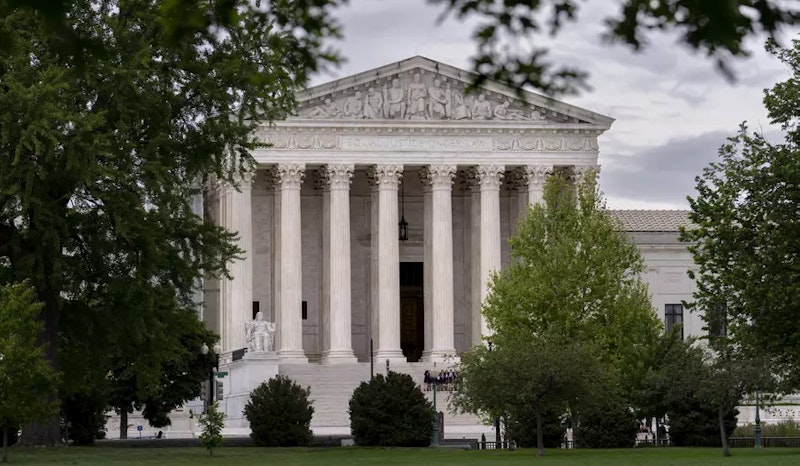Instead of arguing, liberals often just list things. Unable to make a convincing case that, say, regulation makes people safe more efficiently than would voluntary behavior informed by insurance liability costs and the threat of lawsuits, liberals will routinely just rattle off an endless list of objects and aspects of life that regulation touches with its presumably loving hand, as if the sheer enormity of the list carries persuasive force: our air, our water, the cars we drive, the forks with which we eat, on and on. To regulate so many things, it’s implied, government must indeed be wise and protective!
It’s as idiotic as a Christian attempting to prove the existence of God simply by listing all the things God supposedly created, like, “Don’t you atheists realize he made clouds and fish and rocks and” etc. Liberals would easily peg such a Christian as a time-wasting imbecile, but they apparently find it very satisfying when weird-looking and exasperated MSNBC hosts breathlessly run through their lists of regulated things. How could the free-marketeers want to deregulate SO MANY THINGS, the bespectacled hosts plainly want to yell, perhaps with tears rolling down their faces.
The exasperated/bespectacled liberals of the world are listing regulations this week because the Supreme Court heard arguments last week (in the case of Loper Bright Enterprises v. Raimondo) in favor of diminishing the so-called “Chevron deference” currently afforded regulatory agencies to decide, in infinite detail, how to enforce vague, aspirational laws passed by Congress. Congress might decree decreased smog or some other goal, but unelected agency bureaucrats will decide how big a decrease, by what metrics, how great the penalties for non-compliance shall be, and so forth.
In effect, lawmaking is farmed out to unelected agencies by an elected legislature that rarely finds time to read the laws it passes, let alone the subsequent flurry of regulations. Courts thus err on the side of letting the bureaucrats do as they please, and people who love government pretend it’s all decided by pure science (never mind the details), as if the periodic table of the elements itself dictates how many businesses to close or how much tax to collect.
To proudly servile, pro-government MSNBC hosts, a lawsuit rebuking regulators and arguing we should err instead on the side of making Congress do its job—and make it create (or at least clarify, or better yet abandon) the regulations—is a shocking “power grab” the likes of which has not been seen since the 19th century (and one backed by associates of the Koch activist network to boot). Letting individuals operate in the market without interference, or maybe vote for their representatives? That’s a power grab, says MSNBC! But ditching both markets and electoral politics in favor of letting the unelected experts decide what we can do? Democracy in action, we’re told!
(Though given how much the MSNBC crowd trust the experts to do exactly what’s rational, one has to wonder why they think democracy is necessary at all. If the experts know so well what ought to be done, isn’t it time to eliminate the legislature part of the process altogether and let Soviet-style planning bureaus tell us how things should be, with no laws or voters involved at all?)
One thing the likes of MSNBC get right about this legal dispute, though, is pointing out that the regulatory excesses allowed by the Chevron deference began under a conservative administration, when the Reagan White House was convinced the executive branch and its various agencies would regulate more gently than would an activist Democratic Congress. Beware what you wish for—and always remember that the powers you vest in your political allies or the branch of government you control today will likely be wielded by your enemies tomorrow, or maybe four years from now when control of the various branches of government has perhaps once more been reshuffled between political parties.
That’s a caveat that seems highly likely to be forgotten by a second Trump administration, convinced as Trump and his authoritarian allies seem to be that the more power is vested in the presidency, the more wonderful a post-2024 world will be. If future presidents turn out not to be stable geniuses, well, we’ll worry about that later.
But it’d be wiser to eliminate governmental power altogether and stop assuming people who think like you will always have the upper hand. That assumption is dangerous whether it takes the form of Trumpers picturing their revered leader guiding the state forevermore or the MSNBC hosts imagining the EPA and OSHA, away from the prying eyes of legislators and commoners alike, must know what they’re doing.
Too much deference to the bureaucracies and you also end up with things like St. Louis’ mask mandate imposed and then rescinded within a day, NIH and the Pentagon deciding in secret conferences with activist scientists and Chinese officials whether to ignore the dangers of “gain of function” experiments on coronaviruses, New Zealand arresting a reporter for opposing pandemic regulations, or for that matter the UK’s cops deciding on their own initiative when to warn citizens they’re speaking too rudely about foreigners or communists.
A lot more leeway for free individuals and a lot less for those who rule over them would be a nice change of pace.
—Todd Seavey is the author of Libertarianism for Beginners and is on X at @ToddSeavey

